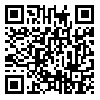جمعه 10 بهمن 1404
دوره 11، شماره 3 - ( تابستان 1404 )
جلد 11 شماره 3 صفحات 244-237 |
برگشت به فهرست نسخه ها
Ethics code: IR.GUMS.REC.1399.615.
Download citation:
BibTeX | RIS | EndNote | Medlars | ProCite | Reference Manager | RefWorks
Send citation to:



BibTeX | RIS | EndNote | Medlars | ProCite | Reference Manager | RefWorks
Send citation to:
Khoshtarash H, Saberi A, Hatamian H, Ashraf A, Ahmadi S, Yazdanipour M A. The Association Between Recombinant Tissue Plasminogen Activator and Post-ischemic Stroke Seizure: A Retrospective Cohort Study. Caspian J Neurol Sci 2025; 11 (3) :237-244
URL: http://cjns.gums.ac.ir/article-1-780-fa.html
URL: http://cjns.gums.ac.ir/article-1-780-fa.html
The Association Between Recombinant Tissue Plasminogen Activator and Post-ischemic Stroke Seizure: A Retrospective Cohort Study. مجله علوم اعصاب کاسپین. 1404; 11 (3) :237-244
چکیده: (532 مشاهده)
Background: Recombinant tissue plasminogen activator (r-tPA) has remained the primary therapeutic intervention for ischemic stroke when administered within the recommended time window. Despite its well-established benefits, potential side effects—glutamate release, increased leukocyte activity, and oxidative stress—should also be considered. Among these concerns, the development of post-stroke seizures (PSS) has gained attention as a possible complication.
Objectives: This study explored the association between r-tPA administration and the likelihood of post-stroke seizure.
Materials & Methods: A retrospective cohort of 200 patients, split evenly between those treated with r-tPA and those who were not, was analyzed at an academic hospital in northern Iran over three years (2017–2020). Clinical parameters were collected and compared, including demographics, medical history, involved artery, NIHSS (the National Institutes of Health Stroke scale) values on admission, the Alberta stroke program early CT score (ASPECTS), and post-stroke seizure occurrence.
Results: Nineteen patients (10%) developed seizures; 8 of them (8%) belonged to the group without r-tPA, and 11(11%) belonged to the r-tPA group (P=0.469). Results showed no significant relationship between developing seizures and r-tPA therapy. This study shows that the ASPECT score is the only parameter associated with the risk of post-stoke seizure. By increasing one score in ASPECTS, the rate of seizure occurrence decreases by 24.
Conclusion: These outcomes confirm the continued use of r-tPA as a safe and effective treatment option for ischemic stroke patients.
Objectives: This study explored the association between r-tPA administration and the likelihood of post-stroke seizure.
Materials & Methods: A retrospective cohort of 200 patients, split evenly between those treated with r-tPA and those who were not, was analyzed at an academic hospital in northern Iran over three years (2017–2020). Clinical parameters were collected and compared, including demographics, medical history, involved artery, NIHSS (the National Institutes of Health Stroke scale) values on admission, the Alberta stroke program early CT score (ASPECTS), and post-stroke seizure occurrence.
Results: Nineteen patients (10%) developed seizures; 8 of them (8%) belonged to the group without r-tPA, and 11(11%) belonged to the r-tPA group (P=0.469). Results showed no significant relationship between developing seizures and r-tPA therapy. This study shows that the ASPECT score is the only parameter associated with the risk of post-stoke seizure. By increasing one score in ASPECTS, the rate of seizure occurrence decreases by 24.
Conclusion: These outcomes confirm the continued use of r-tPA as a safe and effective treatment option for ischemic stroke patients.
| بازنشر اطلاعات | |
 | این مقاله تحت شرایط Creative Commons Attribution-NonCommercial 4.0 International License قابل بازنشر است. |



